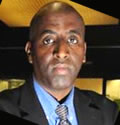Confusion of languages and dialects may lead us to a more divided community!

by Abdi G. Elmi
Thursday, April 25, 2013
With the transcription of the Somali language in 1971, the Somali government at the time adopted Somali as the official language of the country. The government introduced the Somali language into the areas of education, health, finance, defense and all other government systems. From the time of the transcription of the Somali language to the present day all media messages, written and spoken, have been delivered in Somali. Somali is the official language of the country and is used by the entire nation. It is also taught in schools from kindergarten to secondary school (high school by U.S. standards) and even some university classes. Over the past few years we have been hearing about the notion that the Somali community speak different languages and that existent services are struggling to accommodate each of them and to find the right people to interpret for each ethnic group. I would like to share the following points with our readers so we can come to a conclusion about how to address this issue.
Almost all Somali Nationals, inside Somalia and abroad, follow the news at home by listening to foreign broadcasting radio stations, including the BBC, VOA, and other online Somali owned radio stations. The BBC Somali service is the oldest of all Somali speaking radio stations, and currently, BBC Somali Services broadcasts three programs in Somali for a total of two and half hours per day of programming. And since the establishment of the BBC services in 1957, there is no single Somali speaker who has reported that they couldn’t understand the BBC’s Somali Services. If it were true that there is no standard Somali language then there would be more than one BBC and more than one VOA Somali service.
In 2007, I translated and recorded, for the Minnesota Judicial Branch, a statement of defendant’s rights and how to handle a conciliation court hearing in Somali. The relevant documents are available on the Minnesota courts’ website. The defendant’s rights statement is played in all Minnesota State Courtrooms when Somali speaking defendants appear before the court (some courtrooms play the video every morning). No Somali speaking person has as yet come to the court and claimed that they didn’t understand the Somali recorded in the statement. Yet before the defendant’s rights statement was recorded in Somali, and even now, there are individuals who claim that there is no legal terminology in Somali language.
One should not reach the conclusion that there is no standard Somali by speaking to a number of individuals who don’t properly represent the community. If anyone is interested in obtaining facts about Somali, they should research more and try to find background information about how Somali is used in education, health care and other parts of the governmental system. With all due respect, I wonder how one would adhere to the suggestion that “there is no standard Somali language” or “Somali has no medical terminology,” for example, without conducting proper research on the topic.
A claim that there is no standard Somali language is humiliating for all of the Somali speaking community and shows them disrespect. It is no different from an individual from Texas who claims that he is from Texas, speaks only the English that Texans speak and is unable to communicate with the rest of the people in the United States. The Somali language is part of the heritage, identity, culture and dignity of the Somali speaking community and degrading its value is offensive to all Somali speakers.
As is common in every language, Somali has limitations when it comes to new words in the area of technology but those who have studied in Somali schools will agree that they have studied all the scientific subjects in Somali and that there is a Somali word for every scientific or medical term. The Somali Ministry of Education sets and administers the curriculum for all Somali schools and there is only one curriculum studied in these schools.
It comes as a shock to me that the current constitution recently adopted in the Djibouti claims that there is more than one Somali language, namely “Maxaa and Maay.” I am surprised when I receive calls from service providers looking for someone who speaks Northern Somali, Baraawe, Central regions, Marka and other dialects. Don’t we have enough divisions among us? After more than twenty years of civil war are we still dividing rather uniting our people? I want to make it clear that I am not targeting any one particular community or region but rather than being part of the problem, I would prefer to be part of the solution.
If you should ask why some Somali speakers claim that there are different versions of the Somali language, the answer to the question is a short one. People who claim that there are have failed to check the facts. Despite the problem of regionalism that we have inherited from the civil war in Somalia, the intention of those who claim that there is no standard Somali language is really to manipulate the system for their own benefit.
I know that not all of my readers will like this article but the fact is that for a very long time our passion for tribalism and regionalism has come before the public interest and each one of us is trying to advocate for his or her own ideology, region, tribe and so forth. Yet if we fail to change our attitudes, we will never be able to escape the circle that we have traditionally held to for the past twenty-three years and will never provide our younger generation with a brighter future – a future that enables them to compete with their peers.
Abdi G. Elmi, MA. is a court certified Somali Interpreter in the State of Minnesota and the nation. He can be reached at [email protected]